Review for Perfect Blue
Introduction
All the Anime hit one for six with their first release. Cowboy Bebop on Blu-ray was everything that a fan could ask for, brilliant presentation of a TV series, with excellent image and sound quality. Okay, there were one or two minor glitches that meant it winged the umpire on its way out of the grounds, and wound up crashing through a vicarage window and making a mess of the vicar’s tea, but a six is a six however you look at it, and before this metaphor runs out of control, I should say that I was looking forward to their next release with eager anticipation.
After all, who wouldn’t want Perfect Blue on Blu-ray, Satoshi Kon’s debut feature that itself invites cricketing metaphors of Viv Richards, no Garfield Sobers stature? But then I read some less than enthusiastic reviews of the Japanese Blu-ray release of this title, and dialled back my rabid fervour accordingly. After all, the best that All the Anime can hope to offer would, just as with Cowboy Bebop, be based on the Japanese Blu-ray masters. So realistic expectations applied, I take a look at the English territory debut of Perfect Blue on Blu-ray. Since the film is still the amazing psychological tour de force that I saw on Manga’s DVD release, I’ve recycled parts of that review for this one, said text in italics.
Mima Kirigoe is a pop idol with Cham, but Mima wants more than this, and decides to branch into acting, quitting the band. Her first role is a minor one in a detective drama, but when her agents ask for her role to be expanded, the writers oblige by writing an exploitative scene where her character is assaulted in a nightclub. It means the end of her wholesome pop idol image, but she feels obligated to the writers. But there are some out there who don’t want to let the pop idol go, and as Mima makes one bad decision after another, she begins to be haunted by the image of who she used to be. Then the scriptwriter who tainted her image is murdered.
Picture
Perfect Blue gets a 1.85:1 widescreen transfer at 1080p resolution on a single layer disc. It looks to be a faithful representation of the source material, clear, and free of significant compression artefacts, aliasing or digital banding. At one point in the film, in the background of Mima’s apartment, I thought I might have detected a smidge of posterisation, but I had to pause the disc to get a better look.
The problem is that the source material isn’t in the best shape. It’s a cel animation from 1997, all hand drawn and hand painted and shot on actual film. The print that this disc’s master is sourced from isn’t in the best shape, with faded colours, weak blacks, and a lack of dark detail. The print too is softer than you might hope for (although Perfect Blue isn’t exactly a big budget feature), there’s a speck or two of dirt, and even a little shimmer on detail (the fax printing out in the background at 13 minutes). It’s not the most detailed of anime, but you get the feeling that detail levels could be better. The most obvious issue is a constant wobble to the image, no doubt down to the difficulty of keeping cels aligned when shooting the movie. It’s actually more prominent on this disc than in the letterbox DVD from Manga, and it’s the sort of thing that could be fixed digitally if you threw enough money at it.
Sound
A couple of issues here... The first is that the Japanese stereo and surround options are mixed up on the menu; choose stereo and you get surround and vice versa. The second is that the disc menu offers you uncompressed PCM 2.0 Stereo Japanese, what you actually get is Dolby Digital 2.0 Stereo Japanese, along with Dolby Digital 5.1 English Surround, and DTS-HD MA 5.1 Surround Japanese. It’s the latter I stuck with through the film, and it offers a nice bit of surround separation, which makes the film all the more effective as Mima’s paranoid delusions intensify. It builds an effective surround stage out of what probably would have been a simple stereo track, and is one of the high points of the disc.
But the audio presentation isn’t itself without issues, the first being that this disc uses the subtitles from the Manga Entertainment release, which are well timed and fairly accurate, but inherit some of the problems that Manga disc had, including the “Without further adieu” typo at about 2:15 in. There’s also an insignificant subtitle mix-up at 32:31, with the subtitle from 32:37 moved to that point, and the dialogue at 32:37 left uncaptioned. Since it’s during the ‘rape’ sequence, it’s fairly easy to guess what’s being said. A new problem to this disc crops up at 43:56 when a subtitle flashes up, but the audio is silent. There ought to be a bit of chatter from a car radio at this point, for which the subtitle is displayed, but the dialogue has been omitted from the 5.1 Japanese track. It is however present in the DD 2.0 Japanese audio, and it has been dubbed in the English 5.1 audio. I also checked on the Manga DVD, and it is present there on the DD 5.1 Japanese track. This looks to be an error on the part of the Japanese producers when they created the lossless audio for their Blu-ray.
Extras
It’s a bit of a shame that new extra features couldn’t be sourced for the Blu-ray, but All the Anime have been able to retain the extra features that were on the Manga Entertainment release, presented here in 480i resolution, with a couple of notable exceptions.
The 3 English interviews are voiced over clips of the film, and include chats with Ruby Marlow, who talks about dubbing Mima (2:39), Wendy Lee who voiced Rumi (2:19), and Bob Marks, who talks about voicing Mr Me-Mania (1:58).
Then there is a chat with Junko Iwao (5:41), who talks about how she was cast for the role of Mima, as well as her impressions of the character. This is a live interview, and is subtitled (burnt in) in English.
Finally there is an interview with director Satoshi Kon (10:45), who talks about directing his first animated feature, as well as the story he intended to convey.
“The Angel of Your Heart” Recording Session lasts 4:22 and you can see Cham recording the song in the studio.
You can then hear the English dub of this song against a still image from the film (1080p) and this lasts 4:18.
The English credit scroll from the Manga Entertainment release is presented here separately, although it automatically plays after the film has finished as well. You also get the US/UK trailer for that Manga release.
Finally the Japanese trailer is presented in 480 24p, a rare format in my experience, and one that raised an odd player incompatibility issue with my Panasonic SC BT 230 Home Cinema. It refused to display the trailer correctly, stopped me from exiting back the menu, and crashed the disc after it finished.
The disc presents its options with a static menu, and one niggle is that when navigating the extras, after each one, it exits to the virgin menu screen. It would be better if it exited to the screen keeping the extras menu list open so you could easily select the next one.
Conclusion
Perfect Blue is an absolutely gripping psychological thriller. There is also valuable social commentary on the fickle nature of fame, and the effect it has not only on those seeking fame, but also on those who allow their fanatical adoration of idols to turn into all consuming obsession. That it is an animated film is almost an afterthought. The reality of the characters and the way that the story develops is such that very early on, I found myself engrossed in the unfolding events, and had completely forgotten that the film wasn’t live action. This is less a comment on the quality of the animation, although it is of a uniformly high standard, rather than acknowledging the strength and power of the storytelling.
Central to the story is Mima, the young pop idol that wishes to become an actress. There is an initial ambiguity as to whose idea it is, with her agents believing that an increase in her public exposure can only be a good thing. She soon embraces the idea though, and wholeheartedly throws herself into her new career. It isn’t easy of course, especially when her new peers and colleagues look down on her because of her pop background. Her agents work to get her role expanded, but it comes at a cost. She has to portray a character that is raped, in a scene that verges on the exploitative. She’s reluctant of course, but feels obligated to her agents. It’s such a change from her previous image that the emotional pressure becomes too much to bear. From the opening scenes of the film, the story is told in such a way to set up a contrast between the public pop idol image of Mima and the private individual. This contrast becomes real for Mima when she starts being haunted by the pop idol image of her former self. As she continues to make bad decisions, her former self begins to taunt her, accusing her of selling out. It’s when it appears that this ghostly image can affect the real world that Mima begins to break from reality.
The film isn’t so simplistic as to paint a convenient exploitative villain. Mima’s agents do have her best interests at heart and they realise that both they and Mima have to sacrifice her former image to succeed at her new career. While Tadokoro is implicit in the choices presented to Mima, he does profess reluctance when it becomes too exploitative. He recognises that it is the way the industry operates. Far more sympathetic to Mima is her other agent Rumi. Being a former pop star herself, she understands what Mima is going through. It’s one of the film’s more moving scenes when they are filming the rape, and Rumi realises just what she has done to her client.
The nature of fandom is revealed in the incidental moments of the film, as people gossip and spread rumours about Cham and Mima. It’s the sort of opinion that fills many a tabloid and is relatively innocuous. Fandom becomes more serious though, when Mima learns that she has a website in her honour. It should be ringing alarm bells when she sees that it chronicles the intimate and mundane events of her day-to-day life, as well as her inner feelings. She’s hardly computer literate though and as her reality begins to crumble, the website begins to reflect the pop idol self rather than who she wants to be. That she has a stalker is evident, someone who obsesses about the pop idol and doesn’t want that to change. When Mima announces that she is leaving Cham, the stalker becomes fixated on preventing that, and the lengths that he pursues grow more and more extreme.
Perfect Blue is one of the best thrillers that I have seen in years. It’s a story that draws in the viewer, is both unsettling and moving, and challenges the perceptions. The story is tightly plotted, and the climax had me at the edge of my seat.
I watched this film again last night and once again I was wrapped up in its convoluted narrative, its mind bending story, its constantly shifting perspectives, and I was once again struck by how tragic Satoshi Kon’s premature passing was. He was a master storyteller, something he showed in films like Millennium Actress, Paprika, Tokyo Godfathers, and the Paranoia Agent TV series. All of his creations have little touches in common, notes of similarity, and characteristically deceptive narratives, and it all began with Perfect Blue. The disappointment is that a filmmaker of his stature, of his place in anime history doesn’t get a worthy Blu-ray for his first film. This wasn’t the best print to strike a Blu-ray off. I would have gone for a full review length lament about this, but I put Manga’s letterbox version of the film into the player straight after to compare and contrast, and after seeing its standards conversion, low resolution, and blown out colours, suddenly this Blu-ray is the best thing ever. Or at least it will be until someone finds a decent print and shells out for a proper restoration. Perfect Blue isn’t the perfect blu, but it will do for now. Or in cricketing terms, it may not be a spectacular boundary, but it is the quick single played to silly mid-off from the final over that clinches the game...
All the Anime are releasing this as a limited edition combo pack with their re-mastered anamorphic DVD along with some delectable physical extras.































































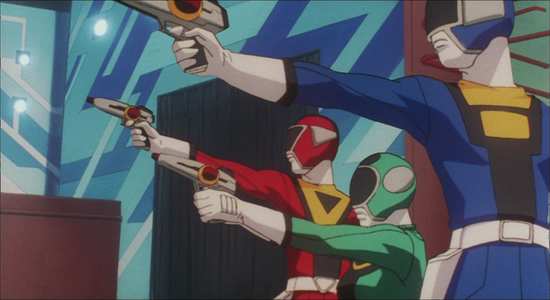
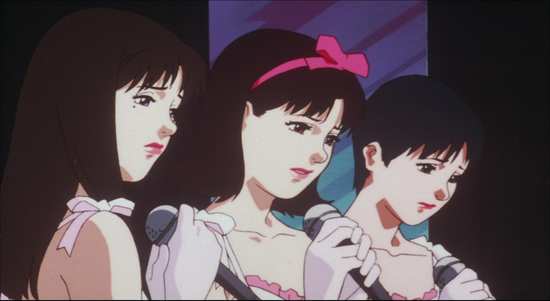
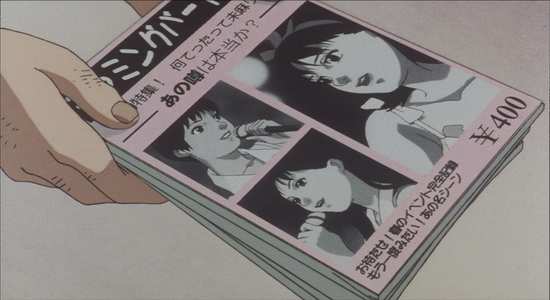
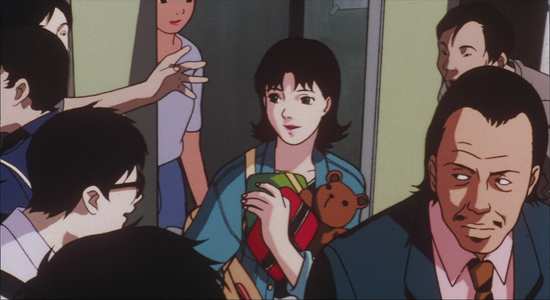
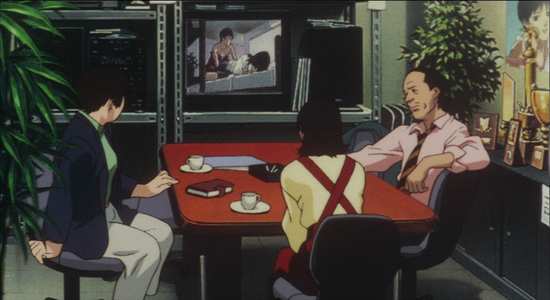


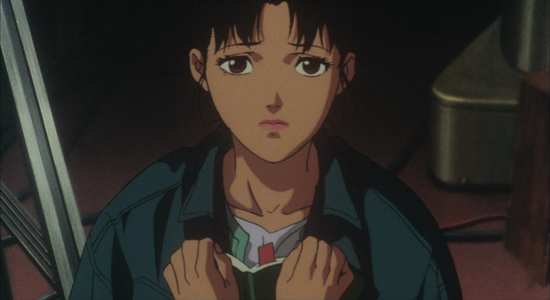

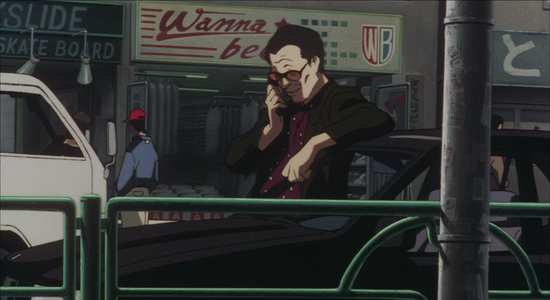
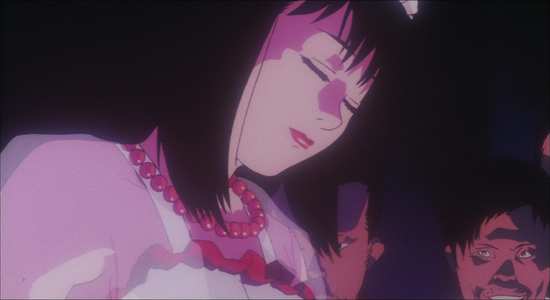




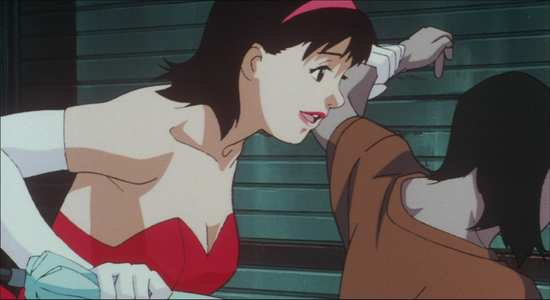
Your Opinions and Comments
Be the first to post a comment!